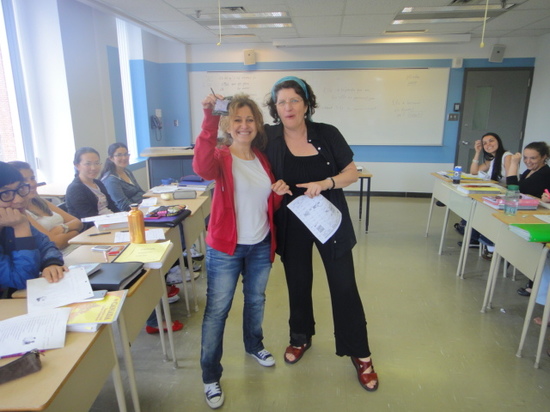Diane Proulx is one of those Francophones who have a special relationship with and a deep understanding of the process of immigration to Quebec: her job is to assist the new arrivals along their way to social integration. She has been a French teacher with MIDI (Ministère de l'Immigration, de la Diversité et de l'Inclusion) for almost 35 years now. The program she works for consists in nine months of full-time French classes, and most of her students start going through it as soon as they step into the province. For many of them throughout these years she has represented the first contact with Quebec culture, lifestyle and values.
November 2014 Archives
At 8.30 on a crisp fall morning, in the lobby of the Marriott hotel in downtown Montreal, a continually-lenghtening line snakes down toward the "grand ballroom" in the basement. It's the waiting line for one of today's citizenship ceremonies, of which there are three or four happening daily in the city. Natalia B. is ready for this milestone she's reached after four and a half years in Canada. In a demure top and skirt, discreetly made up, her hair in a ponytail, she clutches at the immigration documents she's brought with her. "I'm not feeling anything special," she tells me, "maybe I will later."
I first met Natalia three years ago: for a short while she was my teacher in a Russian class I took at a language center downtown. Soon I found out she had been trained to teach English, not Russian, and had in fact worked as an English teacher for ten years in Kyrgysztan and Russia. We bonded over our immigrant backgrounds, discovering we'd arrived in Montreal the same year, in 2010. At the time Natalia was juggling studying full-time at Concordia University (where she got a BA in French Studies and, more recently, a TESL certificate) with teaching Russian not only at the language center, but also in a neighbourhood Russian school.

-thumb-550xauto-5317.jpg)
Recent Comments